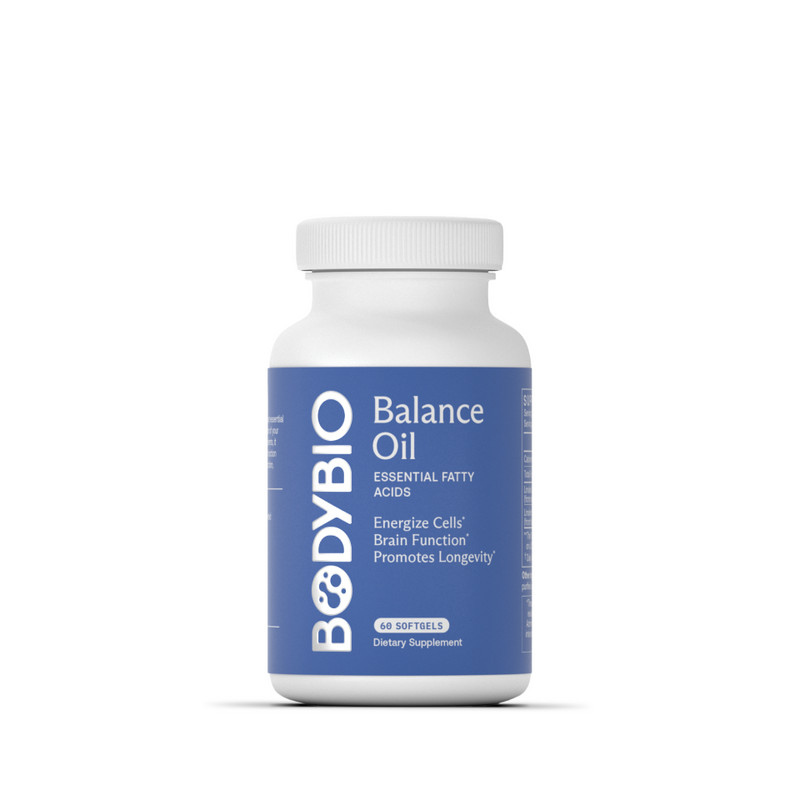The Best Hair Growth Vitamins for Longer, Thicker, Shinier Hair
Authors:

Pooja Mahtani
PHARMD, MS, CNS, LDN, IFMCP, RN
Key Takeaways:
Key Points:
- For strong, healthy hair, we naturally require certain nutrients to support not only our overall health and well-being but also our hair health and a healthy hair cycle.
- Certain supplements can play a helpful role in addressing hair loss and helping improve overall hair health and hair growth.
- Vitamins and minerals can help strengthen our foundation for strong, shiny, and resilient hair—but healthy hair begins with our lifestyle choices, hair care, and diet.
To many of us, strong, shiny hair symbolizes health, vitality, and confidence. But when it starts to thin or fall out, it can be a frustrating and emotional experience (especially when you're not sure why). Thankfully, advancements in nutrition and science have shown how vitamins and supplements can support overall hair health and growth.
Table of Contents:
- What Causes Hair Loss?
- The Basics: Nutrients Your Hair Needs
- Best Vitamins for Hair Growth
- Tips for Maximizing Hair Growth Naturally
- When Should You Expect to See New Hair Growth?
- Nurture Your Hair From The Inside Out
What Causes Hair Loss?
Hair loss is an increasingly common issue affecting millions of people worldwide—regardless of age or gender. Understanding the root causes is the first step toward addressing it effectively.
Here are some of the most common reasons for hair loss:
1. Genetics
The most common cause of hair loss is hereditary hair thinning, also known as androgenetic alopecia. This condition affects both men and women and typically results in a predictable pattern of hair thinning over time. If your parents or grandparents experienced hair loss, you're more likely to face the same issue.
2. Hormonal Changes
Hormonal fluctuations significantly impact hair health. Pregnancy, menopause, stressful or traumatic experiences, and conditions like polycystic ovary syndrome (PCOS) often disrupt hormonal balance, leading to temporary or long-term hair thinning. Thyroid imbalances can also interfere with the hair growth cycle.
3. Nutritional Deficiencies
Hair follicles rely on a consistent supply of nutrients to grow strong and healthy. Deficiencies in key vitamins and minerals such as biotin, vitamin D, omega-3 fatty acids, magnesium, and zinc can result in hair thinning, breakage, and slowed growth.
4. Stress and Lifestyle Factors
Chronic stress, poor sleep, and unhealthy habits can contribute to hair loss. Stress-induced conditions like telogen effluvium cause hair follicles to prematurely enter the resting phase of the hair growth cycle, leading to excessive shedding.
5. Scalp Conditions
A healthy scalp is the foundation for healthy hair. Issues like dandruff, psoriasis, and fungal infections can weaken hair follicles, impairing growth and leading to hair loss.
By identifying the underlying cause of hair loss, you can take targeted steps to address it—including incorporating hair growth supplements into your daily routine.
The Basics: Nutrients Your Hair Needs
Hair growth isn't just about genetics—your diet and nutrient intake play a massive role in your hair's life cycle. Before diving into supplements, it's important to understand which nutrients fuel healthy hair.
Biotin: The Hair Strengthener
Biotin, also known as vitamin B7, is one of the most talked-about nutrients for hair health—and for good reason. This water-soluble vitamin helps convert food into energy and is vital for keratin production, the protein that forms the structure of hair, skin, and nails. Biotin deficiencies can result in brittle hair or even hair loss.
- Biotin Food Sources: Eggs, nuts, seeds, and sweet potatoes.
- Biotin Hair Benefits: Promotes thicker, stronger strands and reduces brittleness.
Vitamin D: The Follicle Booster
Often called the "sunshine vitamin," vitamin D plays a crucial role in creating new hair follicles by stimulating the follicle to produce new hair strands. Low levels are linked to hair thinning and alopecia.
- Vitamin D Sources: Sunlight, fatty fish, fortified dairy, and egg yolks.
- Vitamin D Hair Benefits: Encourages hair regrowth and reduces follicle dormancy.
Zinc: The Growth Supporter
Zinc supports tissue repair and growth throughout our bodies, including hair follicles, while helping the scalp produce sebum, a natural oil that protects and moisturizes the hair. It also helps regulate oil production on the scalp—whether you are under and over-producing scalp oils.
- Zinc Food Sources: Shellfish, nuts, seeds, and whole grains.
- Zinc Hair Benefits: Combats scalp dryness and keeps follicles healthy.
Omega-3 Fatty Acids: The Moisturizer
These healthy fats nourish hair from within, including nourishing hair follicles, fighting dryness, and reducing inflammation in the scalp, promoting a healthy environment for growth and improving overall scalp health.
- Omega-3 Food Sources: Fatty fish, flaxseeds, walnuts, and chia seeds.
- Omega-3 Hair Benefits: Adds shine and hydration to hair.
Protein: The Building Block
Just like protein is a building block for muscle growth, it plays an essential role in hair health. Hair is primarily made of keratin, a protein, so it's no surprise that a lack of dietary protein can lead to weak strands that break easily. Incorporating the appropriate amount of protein into your diet is essential for maintaining hair strength and elasticity.
- Protein Food Sources: Lean meats, eggs, dairy, legumes, and tofu.
- Protein Hair Benefits: Reduces breakage and supports overall hair health.
Best Vitamins for Hair Growth
If your diet isn't delivering all the nutrients your hair needs, high-quality supplements can bridge the gap. But not all supplements are created equal, and not all supplements help improve hair health or minimize hair loss. Make sure you choose the right ones backed by science.
The best vitamins for hair growth are:
1. Biotin Supplements
Biotin is a go-to for strengthening hair, which makes it a staple in most hair growth supplements. Studies show that consistent biotin supplementation can help improve hair thickness and strength, especially in those with a biotin deficiency. Consider a complex of essential B vitamins which are great for strengthening hair and essential for many bodily functions.
2. Vitamin C + D
Vitamin D and vitamin C work together to support hair growth and strength. Vitamin D stimulates hair follicles, promoting new growth and stopping hair thinning, while vitamin C protects hair follicles from oxidative stress and boosts collagen production for stronger strands. Vitamin C also enhances iron absorption, which is critical for hair health. Consider a liposomal vitamin C supplement—liposomal technology has a 3-6x better absorption rate, which means more vitamin C gets delivered to your cells where it can do the most good.
Pro Tip: You may also want to incorporate other vitamins into your diet to promote overall health including a balanced stress response and cognitive health.
3. Collagen vs Marine Collagen
Collagen provides building blocks for keratin, strengthens hair follicles, and improves the skin's elasticity and hydration levels. It creates a healthier scalp environment by reducing hair breakage and enhancing the overall appearance of hair.
Marine collagen takes these benefits a step further by offering a higher concentration of type I collagen, which directly supports hair elasticity, strength, and resilience. Both forms combat oxidative stress, which can damage hair follicles and slow growth, making them valuable supplement options in your hair care regimen.
For hair growth, you can incorporate collagen through powders or a liquid form—if you choose a powder, you can easily mix it into your morning coffee or smoothie. Marine collagen is particularly beneficial for individuals looking to improve hair quality while addressing scalp health. Whichever you choose, either of these supplements will complement a balanced diet and help improve hair health.
4. Omega-3 Fatty Acids
Rich in essential fatty acids, omega-3 supplements help reduce scalp inflammation, hydrate the scalp, and add shine to your hair. There are two main types of essential fatty acids to consider: Omega-3 and Omega-6. Our BodyBio Balance Oil combines both, containing linoleic acid (from organic, unrefined safflower) and alpha-linolenic acid (from organic flaxseed), which are key for promoting healthy hair. This healthy lipid supplement works to nourish the scalp, strengthen hair follicles, and improve hair texture. With a 4:1 ratio of linoleic acid to alpha-linolenic acid, BodyBio Balance Oil provides the perfect balance to support vibrant, strong, and shiny hair.
5. Magnesium
Magnesium helps maintain biological conditions necessary for healthy hair growth. One of its key functions is regulating calcium levels in the body. Excess calcium can accumulate on the scalp, clog hair follicles, and hinder new growth. Magnesium helps stop this buildup, keeping the scalp clear and follicles healthy. It also supports scalp circulation by relaxing blood vessels, ensuring that oxygen and nutrients are delivered efficiently to hair follicles.
Additionally, magnesium plays a significant role in reducing stress, which is a common cause of hair loss. By lowering cortisol levels, the body's primary stress hormone, magnesium can mitigate stress-related hair loss. Incorporating magnesium-rich foods like leafy greens, nuts, seeds, and whole grains into your diet, or using a magnesium supplement, like magnesium glycinate, can help strengthen hair and improve its resilience over time.
6. Zinc
Zinc helps combat hair loss by supporting healthy follicle function and reducing dandruff. Zinc lozenges or capsules are an easy way to ensure you're meeting your daily requirements. Be careful not to overdo it—excessive zinc can interfere with the absorption of other essential nutrients.
7. Herbal Supplements: Saw Palmetto and Horsetail
Saw palmetto is believed to block DHT, a hormone linked to hair loss, while horsetail extract contains silica, which strengthens hair and promotes growth. There are plenty of hair growth supplements including both saw palmetto and horsetail extract in their proprietary blends, so be sure to check those blends for high quality ingredients if you choose a preformulated hair growth supplement.
Tips for Maximizing Hair Growth Naturally
Taking supplements is just one part of the puzzle. A healthy lifestyle is the foundation essential for supplements to do their best work.
Adopt a Healthy Hair Diet
Nutrition is where hair health starts. Incorporate nutrient-dense foods like leafy greens, lean proteins, and omega-3-rich sources to provide the foundation for strong, healthy hair. Make sure to stay hydrated throughout the day as well — dehydration can make hair dry and brittle.
Stay Consistent
Hair supplements take time to show results. Stick to a consistent routine with your nutrition and hair care and give your body time to respond to your new routine before changing it.
Practice Gentle Hair Care
Avoid over-washing, harsh chemicals, tight hairstyles, and excessive heat styling. Opt for sulfate-free shampoos and conditioners to protect your scalp and strands. Treat your hair gently to minimize damage.
Manage Stress Levels
Chronic stress can accelerate hair loss. Incorporate relaxation techniques throughout your week like meditation, yoga, or journaling to maintain a healthy stress level.
When Should You Expect to See New Hair Growth?
Hair growth is a slow process, so patience is key. On average, hair grows about half an inch per month, but factors like age, lifestyle, health, and genetics can influence this. Most people begin to notice improvements in hair strength, texture, and growth after 3 to 6 months of consistent supplementation and healthy habits.
Nurture Your Hair from the Inside Out
Remember, healthy hair starts from within. By addressing lifestyle and nutritional gaps, and using the appropriate vitamins and supplements, you can support your hair's natural growth cycle and restore your hair health. Combine these efforts with a gentle hair care routine, and you'll be well on your way to achieving the strong, luscious locks you've been dreaming of!
Almohanna, H. M., Ahmed, A. A., Tsatalis, J. P., & Tosti, A. (2019). The Role of Vitamins and Minerals in Hair Loss: A Review. Dermatology and therapy, 9(1), 51–70. https://doi.org/10.1007/s13555-018-0278-6
Asghar, F., Shamim, N., Farooque, U., Sheikh, H., & Aqeel, R. (2020). Telogen Effluvium: A Review of the Literature. Cureus, 12(5), e8320. https://doi.org/10.7759/cureus.8320
Borrego-Ruiz, A., & Borrego, J. J. (2024). Nutritional and Microbial Strategies for Treating Acne, Alopecia, and Atopic Dermatitis. Nutrients, 16(20), 3559. https://doi.org/10.3390/nu16203559
Chen, C. L., Huang, W. Y., Wang, E. H. C., Tai, K. Y., & Lin, S. J. (2020). Functional complexity of hair follicle stem cell niche and therapeutic targeting of niche dysfunction for hair regeneration. Journal of biomedical science, 27(1), 43. https://doi.org/10.1186/s12929-020-0624-8
Evron, E., Juhasz, M., Babadjouni, A., & Mesinkovska, N. A. (2020). Natural Hair Supplement: Friend or Foe? Saw Palmetto, a Systematic Review in Alopecia. Skin appendage disorders, 6(6), 329–337. https://doi.org/10.1159/000509905
Gokce, N., Basgoz, N., Kenanoglu, S., Akalin, H., Ozkul, Y., Ergoren, M. C., Beccari, T., Bertelli, M., & Dundar, M. (2022). An overview of the genetic aspects of hair loss and its connection with nutrition. Journal of preventive medicine and hygiene, 63(2 Suppl 3), E228–E238. https://doi.org/10.15167/2421-4248/jpmh2022.63.2S3.2765
Harrison, S., & Bergfeld, W. (2009). Diffuse hair loss: its triggers and management. Cleveland Clinic journal of medicine, 76(6), 361–367. https://doi.org/10.3949/ccjm.76a.08080
Ho, C. Y., Chen, J. Y., Hsu, W. L., Yu, S., Chen, W. C., Chiu, S. H., Yang, H. R., Lin, S. Y., & Wu, C. Y. (2023). Female Pattern Hair Loss: An Overview with Focus on the Genetics. Genes, 14(7), 1326. https://doi.org/10.3390/genes14071326
Le Floc'h, C., Cheniti, A., Connétable, S., Piccardi, N., Vincenzi, C., & Tosti, A. (2015). Effect of a nutritional supplement on hair loss in women. Journal of cosmetic dermatology, 14(1), 76–82. https://doi.org/10.1111/jocd.12127
Mounsey, A. L., & Reed, S. W. (2009). Diagnosing and treating hair loss. American family physician, 80(4), 356–362.
Oiwoh, S. O., Enitan, A. O., Adegbosin, O. T., Akinboro, A. O., & Onayemi, E. O. (2024). Androgenetic Alopecia: A Review. The Nigerian postgraduate medical journal, 31(2), 85–92. https://doi.org/10.4103/npmj.npmj_47_24
Patel, D. P., Swink, S. M., & Castelo-Soccio, L. (2017). A Review of the Use of Biotin for Hair Loss. Skin appendage disorders, 3(3), 166–169. https://doi.org/10.1159/000462981
Pham, C. T., Romero, K., Almohanna, H. M., Griggs, J., Ahmed, A., & Tosti, A. (2020). The Role of Diet as an Adjuvant Treatment in Scarring and Nonscarring Alopecia. Skin appendage disorders, 6(2), 88–96. https://doi.org/10.1159/000504786
Ramos, P. M., & Miot, H. A. (2015). Female Pattern Hair Loss: a clinical and pathophysiological review. Anais brasileiros de dermatologia, 90(4), 529–543. https://doi.org/10.1590/abd1806-4841.20153370
Saini, K., & Mysore, V. (2021). Role of vitamin D in hair loss: A short review. Journal of cosmetic dermatology, 20(11), 3407–3414. https://doi.org/10.1111/jocd.14421
Sinclair R. D. (2007). Healthy hair: what is it?. The journal of investigative dermatology. Symposium proceedings, 12(2), 2–5. https://doi.org/10.1038/sj.jidsymp.5650046
Sudeep, H. V., Rashmi, S., Jestin, T. V., Richards, A., Gouthamchandra, K., & Shyamprasad, K. (2023). Oral and Topical Administration of a Standardized Saw Palmetto Oil Reduces Hair Fall and Improves the Hair Growth in Androgenetic Alopecia Subjects - A 16-Week Randomized, Placebo-Controlled Study. Clinical, cosmetic and investigational dermatology, 16, 3251–3266. https://doi.org/10.2147/CCID.S435795
Tamashunas, N. L., & Bergfeld, W. F. (2021). Male and female pattern hair loss: Treatable and worth treating. Cleveland Clinic journal of medicine, 88(3), 173–182. https://doi.org/10.3949/ccjm.88a.20014
Völker, J. M., Koch, N., Becker, M., & Klenk, A. (2020). Caffeine and Its Pharmacological Benefits in the Management of Androgenetic Alopecia: A Review. Skin pharmacology and physiology, 33(3), 93–109. https://doi.org/10.1159/000508228



